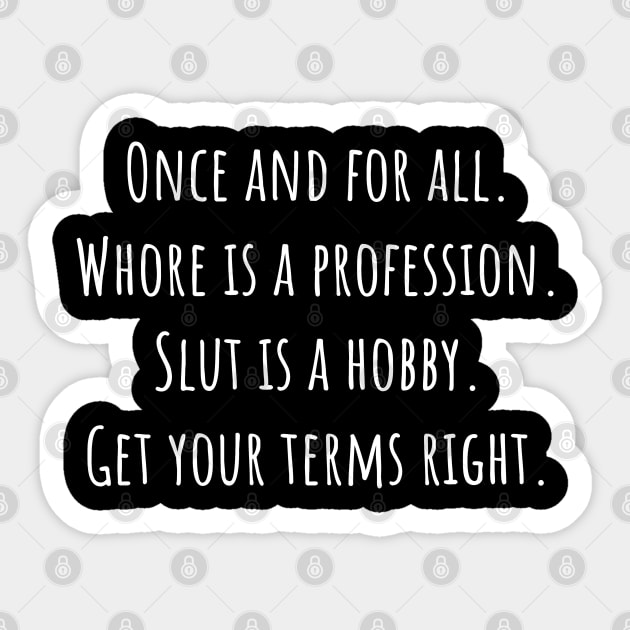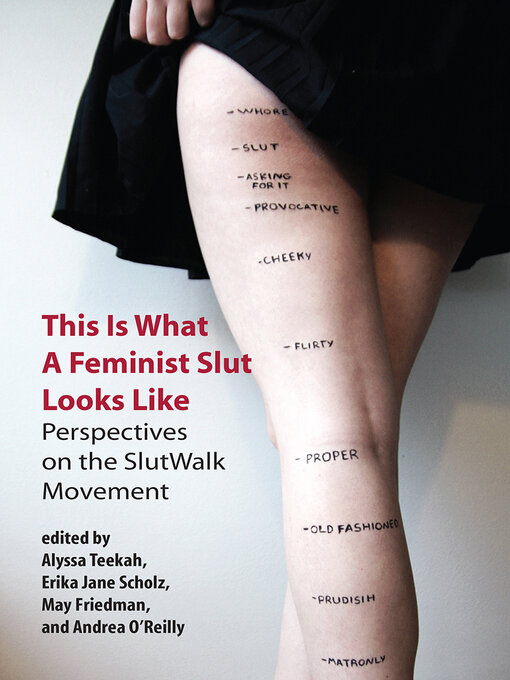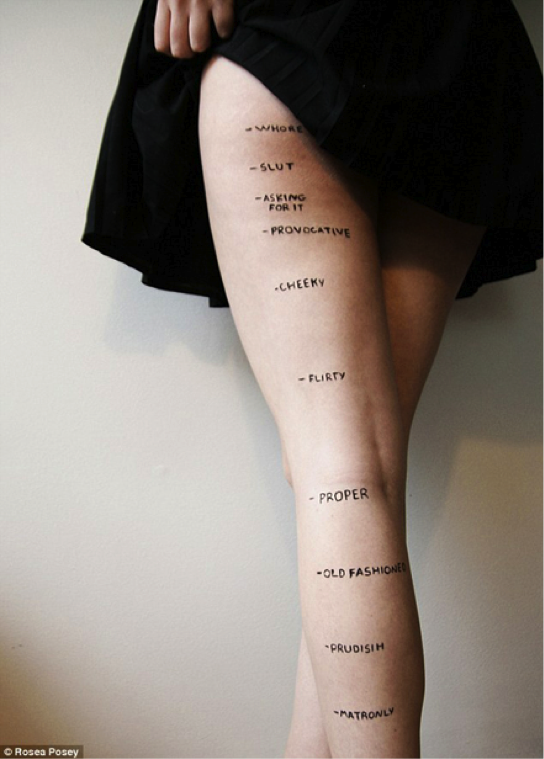A whore charges money for casual sex, while a slut has a lot of casual sex with different people. In today’s society, there are various terms used to label individuals based on their sexual behavior.
Two such terms are “whore” and “slut. ” While these terms are often used interchangeably, there are subtle differences in their meanings. Understanding these differences can help us navigate conversations about sexual behavior and avoid perpetuating harmful stereotypes. A whore is someone who offers sexual services in exchange for money.
This term is typically associated with individuals who work in the sex industry, such as prostitutes or escorts. On the other hand, a slut is someone who engages in casual sexual encounters with multiple partners without charging money. This term is often used to shame individuals, particularly women, for their perceived promiscuity. We will explore the nuances and connotations of these terms, ultimately aiming to foster a more inclusive and respectful dialogue about sexual behavior.

Credit: www.teepublic.com
Defining Whore And Slut
The terms “whore” and “slut” have different connotations. While a whore typically charges money for sexual services, a slut is someone who engages in promiscuous behavior without financial transactions. These terms, often used pejoratively, carry different societal implications but are both used to negatively label a person’s sexual behavior.
Understanding Whore And Slut
Whore and slut are terms that have been used for centuries to label and stigmatize individuals, especially women, based on their sexual behaviors and attitudes. While these terms are often used interchangeably, it is important to unpack their meanings and the context in which they are used.
Historical Context Of Whore And Slut
The historical context of whore and slut is deeply rooted in patriarchal systems that seek to control and police women’s sexuality. Throughout history, the terms have been used to shame and degrade women who deviate from societal norms of sexual purity and monogamy.
In traditional societies, women who engaged in promiscuous behavior or worked in the sex industry were often labeled as whores, reinforcing the notion that their worth was solely tied to their sexual activities and availability.
On the other hand, the term slut is more commonly used to slut-shame women who are perceived as having too much sexual experience or engaging in casual sexual relationships. It is often employed to undermine and belittle women who assert their sexuality and exercise their autonomy without conforming to societal expectations.
Changing Perceptions
It is essential to recognize that the meanings and connotations of whore and slut are not fixed and have evolved over time. The increasing movement towards sexual liberation and gender equality has challenged the traditional definitions and associations attached to these terms.
Today, many individuals and communities are reclaiming the words whore and slut, seeking to embrace sexual freedom and challenge the double standards that persist. They aim to redefine these terms as expressions of empowerment rather than sources of shame.
The Need For Respect And Consent
While society continues to grapple with the complexities of sexuality and labeling, it is crucial to prioritize respect and consent in all sexual encounters. Labels like whore and slut can contribute to slut-shaming and stigmatization, perpetuating harmful attitudes and inhibiting open dialogue about healthy sexual relationships.
It is important to remember that consensual sexual activities between adults are a personal choice and should not be judged or condemned based on societal expectations or stereotypes.
Ultimately, the choice to embrace or reject these labels is a personal decision that should be respected and supported by society as we strive for a more inclusive and sex-positive culture.
Societal Perceptions
Societal perceptions play a significant role in how we label and judge individuals based on their sexual behavior. The terms “whore” and “slut” have long been used to stigmatize and shame individuals, particularly women, who are perceived to be sexually promiscuous. These terms carry negative connotations and have a profound impact on gender perceptions.
Negative Connotations Of Whore And Slut
The term “whore” is often used to label someone who engages in sexual activities in exchange for money. It is a derogatory term that carries the weight of societal judgment and often implies moral reprehensibility. On the other hand, the term “slut” is used to label someone, typically a woman, who is seen as having too much sexual experience or engaging in casual sex with multiple partners. Both terms are intended to belittle and shame individuals for their sexual behavior, perpetuating harmful stereotypes and double standards.
Impact On Gender Perceptions
The negative perceptions associated with the terms “whore” and “slut” perpetuate harmful gender stereotypes and inequalities. Women who are labeled as whores or sluts often face severe judgment and are subject to slut-shaming and victim-blaming. This not only reinforces the notion of female sexuality as something to be controlled and policed but also contributes to a culture of sexism and misogyny.
These unfair labels also impact men, albeit to a lesser extent, as they reinforce societal expectations of masculinity and sexuality. Men who have multiple sexual partners are often praised or seen as “players” while women are vilified for the same behavior. These double standards contribute to a harmful and unequal understanding of gender and sexuality.
It is crucial to challenge and dismantle these negative perceptions of sexual behavior. All individuals have the right to express their sexuality freely and without judgment. It is essential to promote a society that celebrates sexual autonomy, consent, and non-judgmental attitudes towards others’ choices and experiences.
Language And Usage
The language and usage of the terms “whore” and “slut” are complex and often controversial. These derogatory terms have been used historically to shame and stigmatize individuals, particularly women, based on their sexual behavior or appearance.
Intended Meaning Of Whore And Slut
The term “whore” typically refers to a person who engages in sexual activity in exchange for money or material goods. It carries a strong negative connotation and is often used to shame and dehumanize individuals involved in sex work. On the other hand, the term “slut” is used to describe someone, usually a woman, who is perceived as being promiscuous or having multiple sexual partners without any financial transactions involved.
Cultural Variations In Usage
It is important to note that the meaning and usage of these terms can vary across different cultures and communities. What is considered a whore or a slut in one culture may not carry the same derogatory meaning in another. These words can be deeply influenced by cultural norms, values, and societal expectations regarding sexuality and gender roles.
In some societies, the word “whore” may be used more exclusively towards individuals engaged in sex work, while “slut” can be applied to anyone perceived as sexually promiscuous, regardless of their profession. It is crucial to understand that the usage of these terms can perpetuate harmful stereotypes and contribute to the sexual objectification and shaming of individuals.
Language is a powerful tool that shapes our perception and understanding of the world. It is necessary to approach the topic of whore and slut with sensitivity and respect, using language that encourages open dialogue, understanding, and promotes empathy.
Reclaiming Terms
In our society, there have been derogatory terms used to shame and judge women for their sexual choices. Two such terms are “whore” and “slut.” These words have been used to stigmatize and control women’s sexuality, perpetuating harmful double standards. However, in recent years, there has been a movement towards reclaiming these terms and challenging their negative connotations. This blog post will explore feminist perspectives on “whore” and “slut” as well as the importance of sex-positive movements in reclaiming and reframing these terms.
Feminist Perspectives On Whore And Slut
Feminist scholars and activists argue that the terms “whore” and “slut” are used to police women’s sexuality and reinforce patriarchal control over their bodies. They emphasize that women should be free to express their sexual desires and make choices without being subjected to shaming or judgment. By reclaiming these terms, feminists aim to destigmatize and empower women, promoting sexual autonomy and equality.
Sex-positive Movements
Sex-positive movements play a crucial role in reclaiming terms like “whore” and “slut.” These movements advocate for open and inclusive conversations about sex, challenging societal taboos and promoting acceptance of diverse sexual experiences. They aim to create an environment where individuals feel comfortable exploring their desires without fear of being labeled or judged. By embracing a sex-positive approach, society can move away from slut-shaming and foster a healthier and more inclusive understanding of human sexuality.
Impact On Individuals
The impact of using derogatory terms like “whore” and “slut” can have negative effects on individuals’ self-esteem and mental well-being. These labels perpetuate harmful stereotypes and can contribute to gender inequality and sexual objectification. It is important to promote respect and understanding to create a more inclusive and supportive environment for all.
Impact on Individuals The labels “whore” and “slut” have a significant impact on individuals, influencing their psychological well-being and subjecting them to social stigma. The implications of being branded with these terms can be detrimental, affecting a person’s self-esteem and mental health.Stigma Associated With Being Labeled A Whore Or Slut
The stigma attached to being labeled a “whore” or “slut” contributes to a culture of shaming individuals for their sexual behavior. These derogatory labels often lead to social exclusion and discrimination, causing immense psychological distress.Psychological Effects
The psychological effects of being referred to as a “whore” or “slut” can be profound, leading to feelings of shame, guilt, and anxiety. Individuals may experience a deterioration in mental health, with increased risk of depression and low self-worth due to the societal condemnation they face. In summary, the impact of being labeled a “whore” or “slut” extends beyond the immediate terms and affects individuals on a deep psychological level. The social stigma associated with these labels can overshadow an individual’s identity, leading to significant distress and mental health issues.
Credit: toronto.overdrive.com

Credit: culturesofengagement.wp.drake.edu
Frequently Asked Questions For Whore Vs Slut
What Is The Difference Between A Whore And A Slut?
A whore charges money for casual sex, while a slut enjoys having sex with multiple partners. Both terms are derogatory and are used to shame women based on their sexual activities.
How Are The Terms Slut, Whore, And Hoe Briefly Defined?
A slut is someone perceived as promiscuous, a whore sells sex as a profession, and a hoe is associated with wanting sex only in relationships and being transient in them.
Is There A Difference Between A Slut And A Whore?
Yes, a slut enjoys having sex with many people, while a whore accepts money for sexual activities. Both terms carry negative connotations and are used to judge women based on their sexuality.
What’s Worse, ‘whore’ Or ‘slut’?
The term ‘whore’ is often considered worse as it suggests engaging in promiscuous sexual behavior for monetary gain, while ‘slut’ is associated with provocative dressing and promiscuity.
Conclusion
In the ongoing debate between the terms “whore” and “slut,” it is important to understand the distinctions. While a slut refers to someone who engages in casual sex with multiple partners, a whore is someone who exchanges sex for money.
Both terms carry negative connotations, but it is crucial to use language carefully and without judgment. It is essential to promote a culture that respects and empowers individuals in their choices regarding their sexual activity. Awareness and education are key to eliminating the stigma associated with these words.

